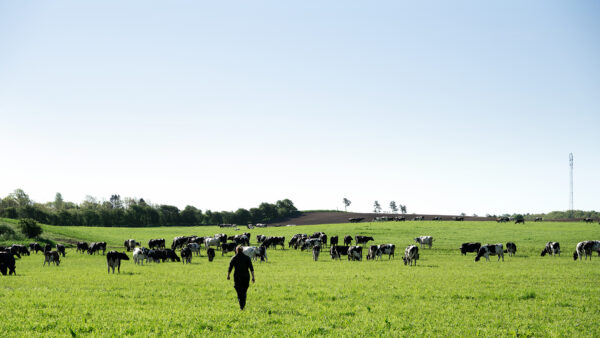Hurdles and opportunities for the crop protection sector post-Brexit
The seed sector on both sides of the English Channel have indicated there are several challenges with Brexit. Companies have been preparing in different ways for when the UK becomes a third country. But it is not only the seed sector that is affected by Brexit. In fact, all input sectors and agriculture itself will suffer from the consequences of the UK leaving the EU. To learn more about the impact of Brexit on some of the other industry sectors, European Seed sat down with Adam Speed, Head of Communications at the Crop Protection Association in the UK.
European Seed (ES): Adam, what do you expect to be the major impacts of Brexit on the EU & UK agricultural and crop protection sector?
Adam Speed (AS): One area where we have some clarity is around the withdrawal agreement, although it’s far from certain that the deal will be approved by parliament. The terms of the draft withdrawal agreement exclude the UK from participating in any process of active substance approval or re-registration during the implementation period, whether at EU level or national.
By being precluded from participating in any process of active substance approval, the UK will be put in the position of being 21 months behind evaluations in the EU at the actual point of exit, thereby disadvantaging UK agriculture and creating a kind of ‘innovation deficit’.
[tweetshare tweet=”Brexit will cause a delay in UK crop protection evaluation, disadvantaging UK agriculture and creating a ‘innovation deficit’.” username=”EuropeanSeed”]
This presents a significant challenge to our members and could impact on the availability to new active substances in the UK.
The other concern is regarding what happens in Europe. The UK currently delivers approximately 30% of the EU workload in terms of active substance approvals and re-registrations. Increasing capacity to meet this shortfall will represent a challenge for the other 27 member states.
ES: Are your members prepared? What kind of measures have been taken and why?
AS: Like all responsible businesses our members have been contingency planning in preparation for Brexit as much as possible. Our membership is diverse, with different business models, supply chains and product pipelines. It’s not possible to comment on the different measures taken by individual companies, but it’s fair to say they have been taking appropriate measures to ensure products remain available for the UK market.
ES: How much does it matter if the UK maintains current alignment with the EU or sets its own regulatory path on crop protection products?

AS: Brexit provides the UK with a unique opportunity to demonstrate progressive leadership in promoting modern, productive and sustainable farming. It also presents an opportunity for the UK Government to consider how these products are regulated in the future and to re-establish the UK as a global leader in research and development.
Our view is that, at present, whilst the current EU environmental regime could be workable, the politicisation of almost every recent decision on crop protection products delineates a trajectory that will ultimately lead to EU farmers losing access to most of the crop protection tools currently at their disposal. Ultimately, this will lead to the EU becoming uncompetitive and perhaps unable to provide a steady and reliable supply of safe, affordable food.
This presents a significant challenge to our members and could impact on the availability to new active substances in the UK.
The other concern is regarding what happens in Europe. The UK currently delivers approximately 30% of the EU workload in terms of active substance approvals and re-registrations. Increasing capacity to meet this shortfall will represent a challenge for the other 27 member states.
ES: Are your members prepared? What kind of measures have been taken and why?
AS: Like all responsible businesses our members have been contingency planning in preparation for Brexit as much as possible. Our membership is diverse, with different business models, supply chains and product pipelines. It’s not possible to comment on the different measures taken by individual companies, but it’s fair to say they have been taking appropriate measures to ensure products remain available for the UK market.
ES: How much does it matter if the UK maintains current alignment with the EU or sets its own regulatory path on crop protection products?
AS: Brexit provides the UK with a unique opportunity to demonstrate progressive leadership in promoting modern, productive and sustainable farming. It also presents an opportunity for the UK Government to consider how these products are regulated in the future and to re-establish the UK as a global leader in research and development.
Our view is that, at present, whilst the current EU environmental regime could be workable, the politicisation of almost every recent decision on crop protection products delineates a trajectory that will ultimately lead to EU farmers losing access to most of the crop protection tools currently at their disposal. Ultimately, this will lead to the EU becoming uncompetitive and perhaps unable to provide a steady and reliable supply of safe, affordable food.
[tweetshare tweet=”The politicisation of crop protection products will lead to the EU becoming uncompetitive and perhaps unable to provide a steady and reliable supply of safe, affordable food.” username=”EuropeanSeed”]
We feel that Brexit presents a genuine opportunity to attract a greater share of the global crop protection R&D spend to the UK. A “Managed Divergence” approach, which builds upon existing regulation, whilst providing greater opportunities for collaboration, faster decision making and greater variety, would help realise the benefits of that opportunity.
This approach would also maintain the current high standards of protection for human health and the environment. A risk assessment and risk management-based system would be more in line with the rest of the world and would ensure that the UK would not become isolated in the global marketplace by UK-specific regulatory requirements. However, it’s unclear what a divergent regulatory regime would mean for trade between the UK and EU in commodities grown using plant protection products containing actives not authorised in the EU.
Where on the web: https://cropprotection.org.uk/













